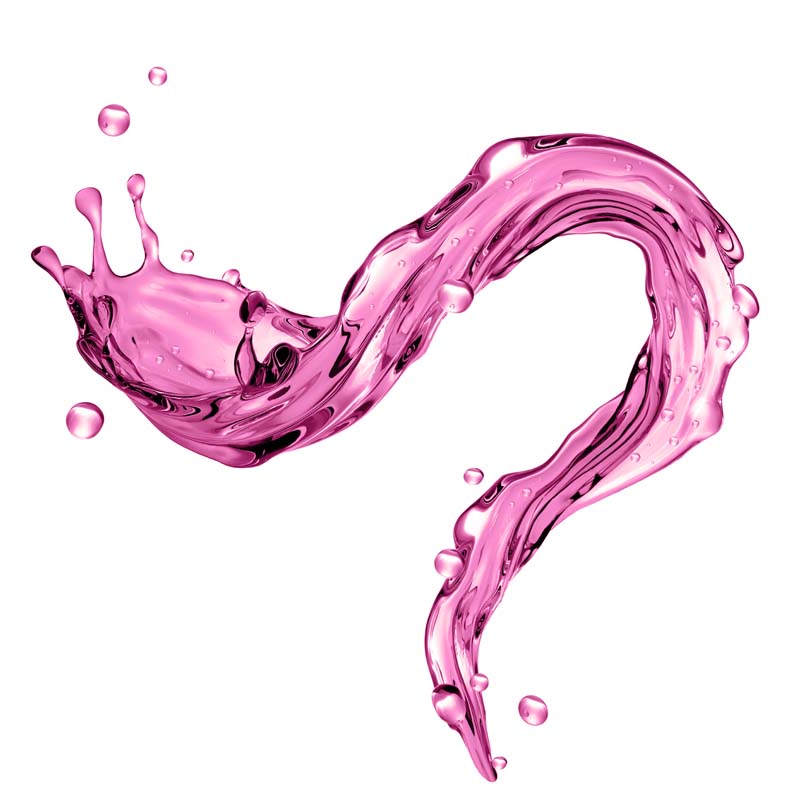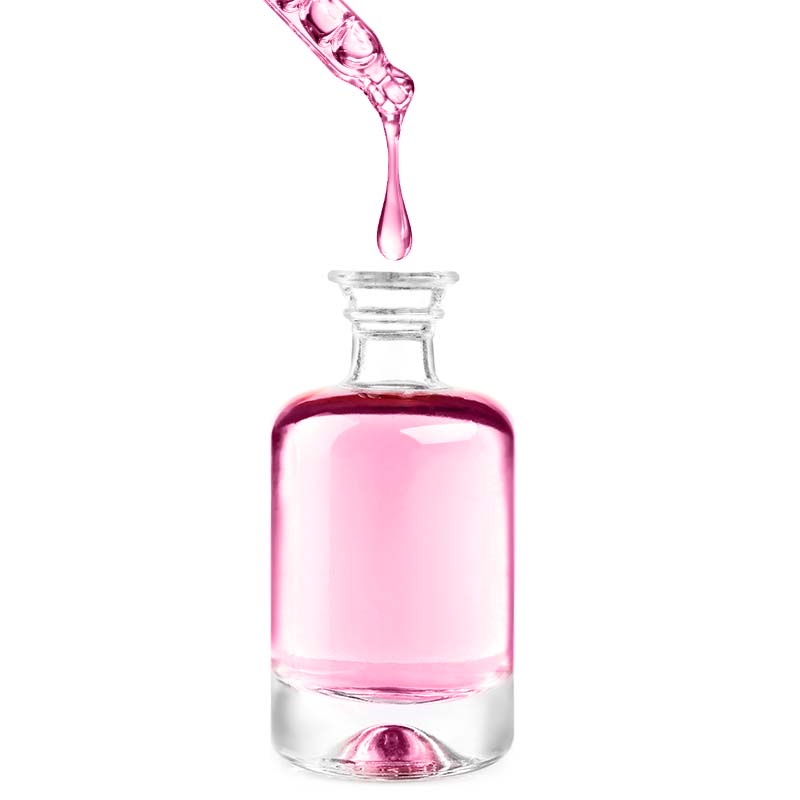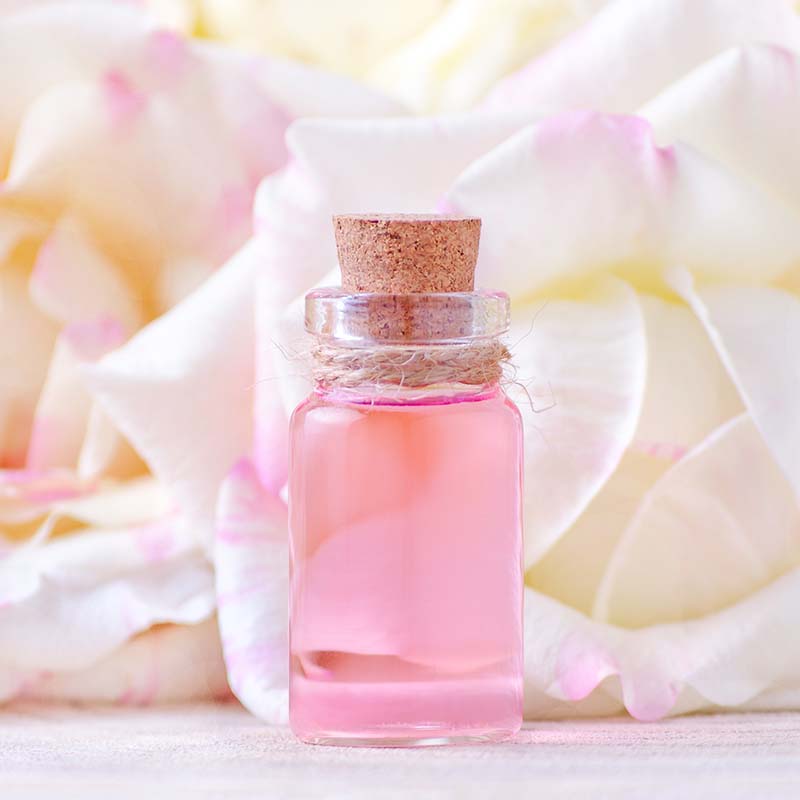Damascena Rose Ingredients
Damascena Rose Water
A natural product, derived from the distillation of rose petals, rose floral water is a rich and powerful cosmetic active ingredient. Astringent, it tones the skin and tightens the pores. Refreshing, it soothes redness, calms irritated skin and revives the complexion. Thanks to its protective and anti-aging functions, it contributes to cell regeneration and prevents the effects of ageing. Its powerful, fresh and subtle fragrance brings a sweet scent of Rose that calls for relaxation and relaxation.
In the past, rose water was considered a universal remedy. The rose in antiquity was widely used for its medical and even supernatural benefits. Nowadays, its healing virtues are recognized in the field of cosmetology, beauty, cooking and well-being.
The Damascena Rose Oil
A floral fragrance, rich and heavy, at the same time spicy, woody and honeyed. An orange-red color sometimes tending towards pale yellow or brown. It is in this way that the precious oil of the Damascena rose presents itself to our senses to seduce us. Having the unique power to harmonize the most contradictory scents, it constitutes one of the most subtle components of high perfumery.
A true elixir of youth, Damascena rose oil is known worldwide as the most refined and precious oil in the world. It contributes to the renewal of skin cells and thus prevents premature aging of the skin. The natural components of the petals are rich in tannic acid and gallic acid, which gives them a tonic and astringent capacity. It promotes circulation, healing and rebalances the epidermis. It thus preserves the youth and radiance of the skin
Rose oil is a precious and rare natural active ingredient. This is due to the impressive amount of rose petals needed to obtain it – it takes more than 3 tons of petals to obtain a single liter of oil. The know-how to produce a quality oil is a carefully guarded secret and perpetrated over the centuries. It is the marriage of several elements, specific to the Balkan region: a particular natural environment, an experience of the cultivation of roses and the production of essence three centuries old.
This precious oil has more than 300 molecular constituents, some of which are difficult to identify. This explains the fact that today the chemical industry has not succeeded in creating a synthetic product that identically imitates this subtle natural base.



